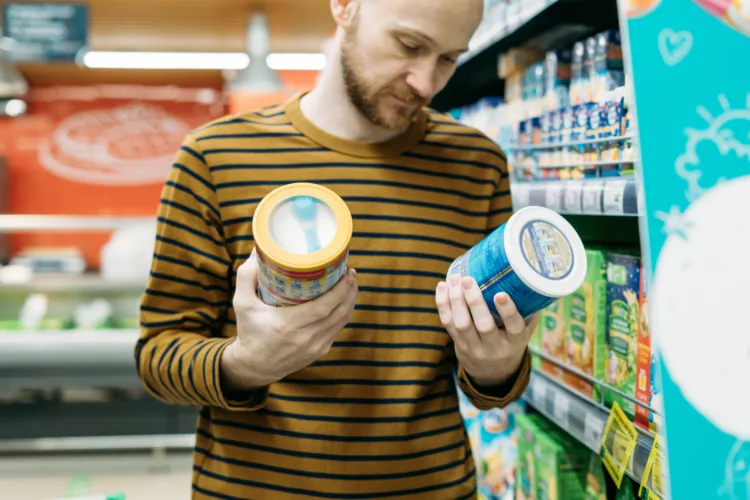
No one can deny that the pervasive nature of social media has had a negative effect on millions of people of all ages, genders and walks of life. Trends, comparisons and heavily filtered and photoshopped images have had the opposite effect of keeping everyone “connected” and instead fostered multiple kinds of unhealthy lifestyles.
Among these is pro-anorexia culture—often referred to as “pro-ana”—which has gained significant attention due to its controversial nature.
What is Pro-Anorexia?
Pretty much everyone has a general idea of what anorexia is — a dangerous restriction of food intake. So hearing pro-anorexia can be confusing. Are there truly trains of thought that promote this mental health condition as a positive thing?
Sadly, yes. Pro-anorexia culture promotes and supports anorexia nervosa, an eating disorder characterized by self-starvation and an intense fear of gaining weight. Unlike traditional recovery-focused perspectives, pro-ana communities often glorify and romanticize the disorder, viewing it as a lifestyle choice rather than a serious mental health condition.
This culture thrives on online platforms like blogs, websites and social media pages, where individuals share tips for extreme weight loss, post images of dangerously slender bodies as “thinspiration” and offer mutual encouragement for maintaining disordered eating behaviors.
These platforms often include content such as:
- Thinspiration — Images and quotes designed to inspire weight loss, often featuring extremely thin models or celebrities;
- Diet tips and tricks — Guides on how to restrict calorie intake, hide eating habits from family and friends and suppress hunger;
- Community encouragement — Forums or chat rooms where individuals share their experiences, offer encouragement and provide a sense of belonging to those who feel isolated in their disorder.
It is important for those who do battle anorexia to find support from friends and family who encourage healthy habits rather than from those who accept unhealthy behaviors and secrecy as a way of life.
Why does pro-anorexia occur?
Several factors contribute to a pro-anorexia culture:
1. Sense of control — Some may feel that anorexia can become a way to exert control over their bodies and lives, particularly in times of emotional distress or uncertainty.
2. Identity and belonging — Pro-ana communities provide a sense of identity and belonging for individuals who may feel misunderstood or stigmatized by mainstream society.
3. Rebellion against traditional recovery — Some individuals may reject traditional recovery narratives, perceiving them as invalidating or dismissive of their struggles and choices.
4. Influence of media and society — Societal pressures to conform to unrealistic beauty standards can push individuals towards pro-anorexia culture as a means of coping with their feelings of inadequacy or dissatisfaction with their bodies. The media portrayals of thinness as an ideal may also reinforce the belief that worth and acceptance are tied to body size.
What are the dangers?
Understandably, promoting an eating disorder as severe as anorexia nervosa as a good thing is going to have a number of negative side effects. The implications of pro-anorexia culture extend beyond individual experiences, affecting families, communities and society at large.
Normalizing Eating Disorders
By framing anorexia as a lifestyle choice rather than a serious mental health issue, pro-ana culture risks normalizing disordered eating behaviors. This normalization can lead to an increase in the number of individuals developing eating disorders, as they may view these behaviors as socially acceptable or aspirational.
Worsening Mental Health Issues
Participation in pro-anorexia communities can make existing mental health issues worse or contribute to the development of new ones. Isolation, shame and guilt often accompany eating disorders, and the validation received from pro-ana groups can not only cause confusion, but may deepen these feelings instead of promoting healing and recovery.
Family Dynamic Breakdown
Families may struggle to understand the motivations behind their loved ones’ involvement in pro-anorexia culture, leading to conflict, misunderstanding and a breakdown in communication. The secrecy and deception often associated with eating disorders can strain relationships and cause distrust.
Increased Hospital Visits
The rise of pro-anorexia culture presents significant challenges for public health officials and mental health practitioners. The promotion of unhealthy behaviors can lead to an increase in hospitalizations for eating disorders, making the need for a more comprehensive approach to prevention and intervention clear.
How Can Pro-Anorexia Culture be Addressed?
Even though it may be discouraging to face, addressing pro-anorexia culture the right way can lead to incredible healing in the lives of many individuals.
- Education — Increasing public awareness about the harmful effects of eating disorders and the realities of pro-anorexia culture is crucial. Education should focus on promoting body positivity, self-acceptance and healthy coping mechanisms;
- Providing support — Developing safe spaces for individuals struggling with body image issues can provide alternative support systems that encourage recovery rather than disordered behaviors. These communities should emphasize mental health awareness and promote constructive dialogue around eating disorders;
- Media responsibility — Media outlets, influencers and advertisers should take responsibility for the messages they convey about body image and beauty standards. By promoting diverse body types and challenging the notion of thinness as the ultimate ideal, the media can help reshape societal perceptions of beauty;
- Professional help — Mental health professionals must be proactive in addressing the complexities surrounding pro-anorexia culture, including developing treatment plans that recognize the challenges posed by online communities, and talking with patients about the influences of social media and the need to be selective of the content they choose to follow.
By starting with these steps, it will become more possible to build a safer space online.
Looking for a Supportive Environment?
If you are looking for a supportive recovery space where you can address any disordered eating concerns, Seeds of Hope is here to help. Call us today to learn more about how we can help.


